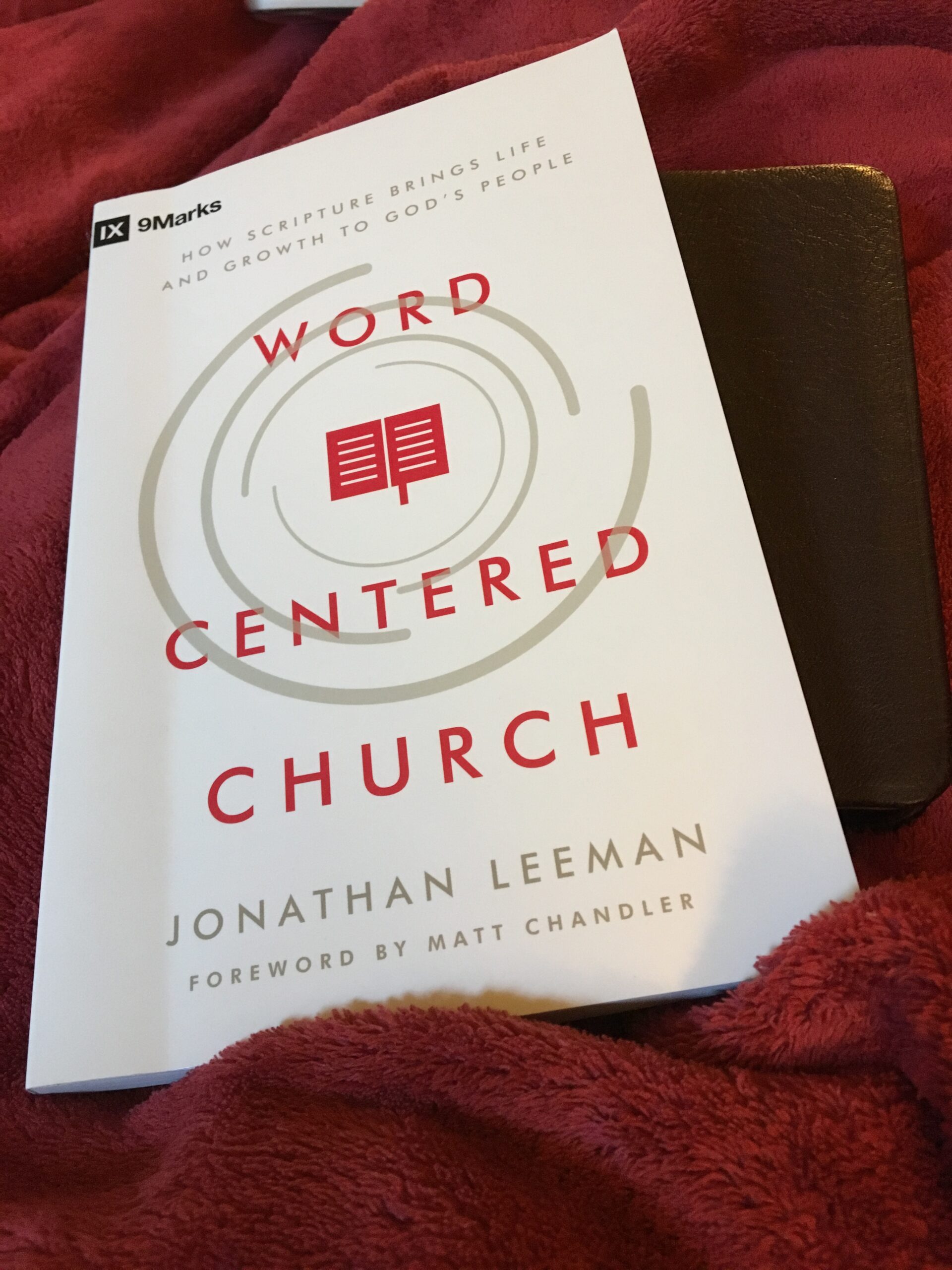We saw the crowds that gathered to attend services at Nigerian preacher TB Joshua’s Synagogue, Church Of All Nations (Scoan). Online sources say Sunday services attracted about 50,000 people and another 7.9 million followed him or his church online. Despite many red flags on the man himself and his ‘gospel’, people flew across continents for ‘impartation’ at his church. We know how that is unraveling. The BBC has a podcast, World of Secrets, on the shocking sexual exploitation, forced abortions, physical assault, brain wash, staged miracles and spiritual abuse and manipulation that went on there.
Closer home we know many ‘redflag’ preachers who continue drawing crowds to their crusades, Sunday services and TV channels. Despite a lack of godly fruit and the strange ‘gospel’ they preach, we still see many people expending energy and time and spending huge sums of money to travel and ‘plant seeds’ just to get a moment with or touch of the ‘man of God’.
Is it God they are seeking? Did those people who flew across the globe to TB Joshua’s church want to grow in their faith and pursue holiness? Are the attendees of Victor Kanyari’s church seeking after Jesus even after the expose on how he paid actors to fake miracles?
State miracles
There’s a joke that has been going around on Whatsapp statuses recently – that a majority of Africans who go to the West stop believing in God because they realise that the State answers 90 percent of their prayer requests.
One story that ran on Kenyan TV in 2023 indicated that Kenyans are running to churches because they are pressed by hard economic times. “The sick, the jobless and the disillusioned of Nairobi are moving from one church to the other looking for a miracle,” the story on Citizen TV said.
And if the above Whatsapp joke is anything to go by, many of us are in church or pursuing a preacher hard-pressed by hard economic times, prodigal children, family feuds, hospital bills, an impossible diagnosis, childlessness, witchcraft, lack of a spouse, a wayward spouse, joblessness, sinking businesses etc… We are primarily seeking solutions, miracles, manifestations, deliverance and prosperity etc.
And we are desperate for a divine intervention. Because in Africa, the supernatural is our only respite. We don’t have generational wealth, welfare systems, affordable healthcare, free education, proper governance and working systems of wealth creation and accumulation to sort us out. So if the divine is not intervening, then it’s probably not happening for us. And therefore we are ready to cajole, bribe, beg, sleep with the prophet, plant a seed, sacrifice a red chicken, cut deals with the devil or whoever is promising a miracle regardless of their double speech, blasphemy or lack of godly fruit in their lives.
But “a discerning man keeps wisdom in view, but a fool’s eyes wander to the ends of the earth” (Proverbs 17:24). Because we lack discernment, we want to believe that if the ‘prophet’ has power, it has to be God’s power, but is it? So we hop from crusade to crusade, miracle service to miracle service, church to mganga kutoka Zanzibar.
Doesn’t this indicate that we are not after Christ but his bread? Remember the crowd that Jesus fed miraculously in John 6, with five loaves and two fish donated by a little boy? When then the next day they went seeking him across lake Tiberius into Capernaum Jesus told them: “You are looking for me, not because you saw the signs I performed but because you ate the loaves and had your fill. Do not work for food that spoils, but for food that endures to eternal life, which the Son of Man will give you. For on him God the Father has placed his seal of approval.” John 6: 26–27 (NIV).
Like that crowd that followed Jesus for chapati–fish, we are chasing provision, miracles and manifestations, instead of chasing food that endures to eternal life that only Christ can give. And in the process we are getting pierced by many sorrows because we find ourselves in the hands of false teachers and prophets, spiritually exploitative and manipulative predators — those ravenous wolves in sheep’s clothing who only take care of themselves instead of the flock.
In Ezekiel 34, they are described as shepherds who slaughter the choice animals to clothe themselves with their wool instead of strengthening the weak, healing the sick, binding up the injured, bringing back the strays or searching for the lost. Instead they leave God’s people scattered, food for wild animals. (Ezekiel 34:1–6)
Beware of the traps
Miracles do not necessarily precede or create faith. Faith comes from hearing the word of God.
“A wicked and adulterous generation seeks after a sign and no sign shall be given except the sign of prophet Jonah” (Mathew 16:4). Jesus rebuked the Pharisees and Sadducees who kept demanding to see more miracles to believe that he was the Christ.
From the accounts of Jesus, we see that those who saw most of his signs did not believe in him. Chorazin, Bethsaida and Capernaum saw many of Christ’s miracles but refused to repent.
“Though he had done so many signs before them, they still did not believe in him,” scripture says in John 12:37 of the crowd that followed Jesus in Jerusalem right after he raised Lazarus from the dead. On the other hand we see Samaritans believing in Jesus en masse on account of the testimony of the woman at the well.
In Matthew 11:20–24 Jesus began to criticize openly these cities because they did not repent.
“Woe to you, Chorazin! Woe to you, Bethsaida! If the miracles done in you had been done in Tyre and Sidon, they would have repented long ago in sackcloth and ashes. But I tell you, it will be more bearable for Tyre and Sidon on the day of judgment than for you! And you, Capernaum, will you be exalted to heaven? No, you will be thrown down to Hades! For if the miracles done among you had been done in Sodom, it would have continued to this day. But I tell you, it will be more bearable for the region of Sodom on the day of judgment than for you!”
Blessed are they who believe from hearing the testimony of Jesus.
Second, the presence of miracles does not necessarily point to the power of God. Pharaoh’s wizards duplicated all of Moses’ miracles. The sons of Sceva in Acts 19 were driving out evils spirits but not by the power of God. The Beast in Revelation and the False Prophet will perform signs and wonders. Miracles are not signs that the spirit of God is moving.
Third, not all who come in God’s name belong to God or are sent by God. This calls for discernment. Some preach a different gospel than that which was handed down to the church by Christ and the apostles. Jesus warns about false prophets who will come in the last days and perform great signs and miracles to deceive even the elect — if that were possible. Paul, Peter and John too warn the church of false apostles and teachers, deceitful workmen, disguising themselves as apostles of Christ, prophesying, casting out demons, doing mighty works in Christ’s name but exploiting with words, encouraging sensuality, bringing in destructive heresies, preaching another gospel. (Galatians 1:8, Matthew 7:15-16, Matthew 7:21-23, 2 Corinthians 11:13-15, 2 Peter 2:1-3, 1 John 4:1, Matthew 7:15, 2 Timothy 4:3-4, Matthew 24:24, 2 Peter 2:1).
The BBC podcast tells of how miracles were staged at the TB Joshua church, together with an elaborate video production department to fool people. Those who saw the miracles sincerely believed that God was healing and working through TB Joshua.
Do not believe every spirit, but test the spirits to see whether they are from God, for many false prophets have gone out into the world. Check for fruit, for we shall recognise them by their fruit. Are grapes gathered from thornbushes, or figs from thistles? Are the practices and teachings alien to scripture or extrabiblical, bordering on cultic and traditions of men?
Fourth, check for the supremacy and sufficiency of Christ in all things. Be wary of places where the focus is on everything else but the gospel. Be wary of spaces where Christ’s saving work is ignored, minimised or left out completely; spaces where we are promised deliverance without the deliverer. Is the preacher more interested in the fact that you are hungry and broke more than that you are a sinner in need of God’s saving grace? Is the preacher willing to give you Jesus and Jesus alone and his reign even if no miracle is forthcoming or are they selling the miracle and Jesus as the add-on? Does it sound like it’s the preacher healing rather than our Lord? Is the miracle more important to us than Jesus? Could we say that we would rather have Jesus than silver or gold or healing or anything the world desires or are we willing to trade the giver for the gift? Is the healing more important than the healer? Would we still spend our time, money and miles over the word of God even if the miracle didn’t come? Is our hope in the preacher/miracle worker or in God? The biggest miracle is the transforming work of the Holy Spirit in the hearts of sinful people who can now say, “I was blind but now I see.”
Fifth, our God is all knowing, all powerful and omnipresent. We do not need to go to Abuja or Mombasa for the grace of God to reach us. He does not need to nagged so that he can begrudgingly answer our pleas like the unjust judge in Jesus’ parable. He does not need to be arm twisted and bribed with half our income.
Finally, our suffering is not lost on God. Like Christ said to the church in Smyrna in Revelation, He knew their tribulation and poverty and how they had been slandered. He knows our problems, our poverty, our diseases, the unpaid school fees, the rent arrears, the wayward child. And He dearly loves us because we have believed in his Son and because the word of truth is in us.
His hand is not short to save or His ears deaf to our cry. God asks us to cast our worries and anxieties to Him. He asks us to make our petitions and requests in prayer and promises us peace beyond our understanding or circumstances. He who did not spare his only Son but gave him up for us, will He not, together with Christ, graciously give us all things? (Romans 8:32.
God is fully able to heal, save, deliver, provide, change… But if He doesn’t, shall trouble or hardship or persecution or famine or nakedness or danger or sword [or financial constraints] separate us from the love of God that is in Christ Jesus? Will we choose Christ as our utmost treasure? Would we rather have Jesus, than silver or gold, or anything this world reveres?




Amen to this word.